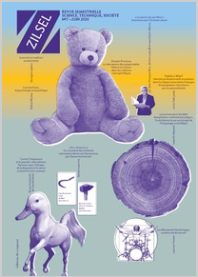Document type : scientific article published in Zilsel
Author: Jocelyne Porcher
Preview: Clean meat, also known as "cultured meat" or "in vitro meat" is an innovation that lies at the heart of an emerging food production paradigm: cell agriculture. According to its proponents, "cell agriculture, or Cell-Ag for short, is the science or practical use of animal products derived from animal cells, rather than whole animals. The list includes, but is not limited to, "food animal products such as meat, milk and eggs, as well as leather, silk and rhino horn". The aim is to provide animal products that are not tainted by animal death (i.e. they are morally "clean", but nor are they physically contaminated by the "dirty" body of the farm animal. This is achieved by shifting the scale at which animal matter is extracted: at the level of the cell rather than the animal in a process of incubation rather than incarnation. As Mark Post, a Dutch biologist who pioneered this type of research and now heads Mosa Meat - a start-up financed by Sergey Brin (co-founder of Google), by Bell Group Food and by M. Ventures (the investment fund of the pharmaceutical company Merck)- tells us: "In vitro bovine meat is 100% natural, it grows outside the cow". We will see that this statement is associated with a pool of representations shared by the biologists, academics and activists who support this innovation.
Clean meat is being promoted as an extraordinary innovation. I propose to show that this is not the case and that, on the contrary, it is the direct descendant of the industrialisation of livestock farming carried out in the 19th century by science and industry. I shall first look at those involved in this innovation and their arguments for promoting it, then at its links with the scientific field of animal studies and, finally, at the impact it could have on the agri-food system and on our relationship with animals.




